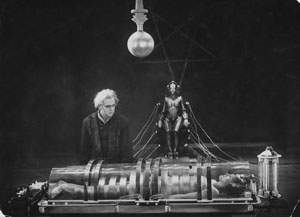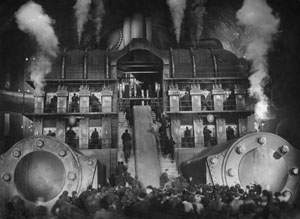
In terms of prescience it is not a match for Things to Come, but in terms of poetic vision and allegory it is a pretty accurate portrayal of the corporate-greed-led industrial world we live in today, a world that Chaplin also captured with more humour in Modern Times.
No matter how impressive modern films are with their CGI, the sheer scale of what Lang achieved cannot fail to amaze.

It is accompanied by a newly orchestrated score, which audiences at this year’s Berlinale were treated to as a live performance. What is more exciting is the fact that a version of Lang’s original uncut version was found in Buenos Aires with 25 minutes of footage that was considered lost. The only downside to this historical discovery was it was a dusty 16mm dupe negative that had lost some of the original aspect ratio.
Compared with the 35mm restoration it looks very scratchy and the first time it appears onscreen it is a little jarring in comparison to the restored cinema print, but once you become used to the switches in image quality you begin to wonder how the film made sense without it.
Whether you have seen Metropolis countless times or never seen it, you must see this new restored version on the big screen to fully appreciate its genius and spectacle.
Metropolis is on general release at/#screenings selected cinemas in the UK from September 10.